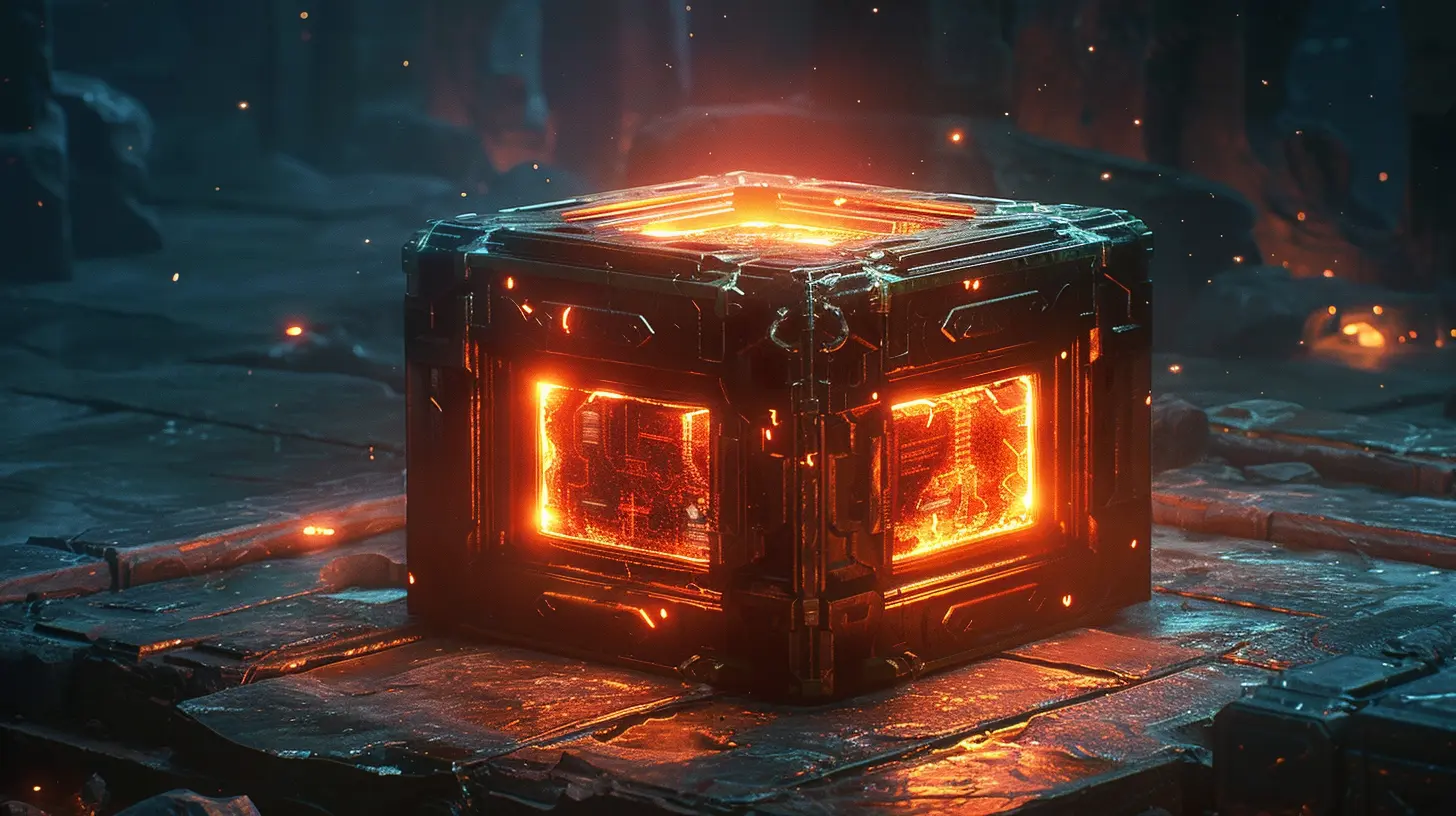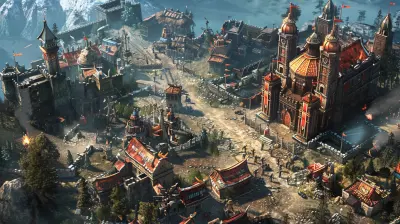Are We Seeing the Decline of the Loot Box Era?
1 March 2025
Loot boxes. You’ve probably heard of them. Maybe you’ve opened a few. Perhaps you’ve spent hours grinding in a game, only to fork over a few bucks to crack open a shiny virtual box, crossing your fingers for that elusive skin or weapon. For years, loot boxes have dominated the gaming world, but nowadays, they seem… quieter. So, here’s the million-dollar question: Are we witnessing the decline of the loot box era? Let’s break it down.

What Exactly Are Loot Boxes?
Alright, let’s start with the basics. Loot boxes are basically virtual treasure chests in video games. You either earn them through grinding or buy them with real-world cash. When you open one, you’re rewarded with random in-game items, like character skins, weapons, or even in-game currency. Think of it as a virtual scratch-off ticket, except instead of winning cash, you’re hoping for some badass gear.But here’s the kicker: you don’t know what you’re gonna get. It’s like ordering a mystery box off the internet. Sometimes you hit the jackpot, and sometimes… you get socks. This whole mystery element is what keeps players hooked (and spending). But it’s also what’s dragged loot boxes into hot water over the years.

The Rise and Reign of Loot Boxes
Loot boxes became a massive trend back in the mid-2010s. Games like Overwatch, FIFA Ultimate Team, and Star Wars: Battlefront 2 made them a cornerstone of their monetization models. And let’s be honest, companies were raking in cash. According to a 2020 report from Juniper Research, loot boxes were expected to generate $20 billion globally. That’s billion with a "B."Why were they so popular? For starters, they were a way for developers to keep the cash flowing even after a game’s initial release. You didn’t just spend $60 once — loot boxes encouraged (or tempted) players to keep spending and spending and… you get the point. Plus, with the rise of “live service” games, where content is continuously updated, loot boxes fit right in.
And, let’s not forget the psychological aspect. Ever heard of the term variable reward system? It’s the same thing that makes slot machines addictive. The thrill of maybe getting something great is often enough to keep you coming back for more. It’s gambling-lite, packaged in a way that doesn’t seem like gambling.

The Backlash Begins
But not everyone was thrilled about loot boxes. Over time, players started to push back, and for good reasons. For one, there’s the whole “pay-to-win” problem. Ever tried competing in a game where your opponent has all the best gear, not because they’re skilled, but because they spent more money? Yeah, frustrating.Then, there’s the gambling angle. Many argued loot boxes were exploiting players, particularly younger ones. Studies showed how the mechanics mimicked gambling, and that raised red flags for parents, advocacy groups, and even governments. Belgium outright banned loot boxes in 2018, labeling them as a form of illegal gambling. Other countries, like the UK and Australia, began investigating them too.
The nail in the coffin for loot boxes might have been Star Wars: Battlefront 2. When the game launched in 2017, it was dragged through the mud for its outrageous loot box system. Players were furious, the press tore it apart, and even Disney had to step in to do damage control. It was a turning point, and since then, the public perception of loot boxes has taken a nosedive.

Where Are Loot Boxes Now?
Fast forward to today, and loot boxes don’t have the same grip they once did. Sure, they’re still around (hello, FIFA Ultimate Team), but developers seem to be slowly moving away from them. And honestly? It might be for the best.A lot of newer games are shifting toward battle passes and direct purchases instead. Take Fortnite, for example. It popularized the battle pass system, where players can earn rewards by progressing through a clearly defined tier system. No randomness, no gambling — just grind and get your goodies. It’s transparent, it’s fair, and most players seem to prefer it.
Even companies that relied heavily on loot boxes have started to rethink their strategies. EA, for instance, announced in 2021 that upcoming games like FIFA 22 would include optional features to help players understand what’s inside a pack before buying it. Baby steps, but they’re steps nonetheless.
What’s Driving the Decline?
The shift away from loot boxes isn’t just about angry gamers. It’s a mix of changing trends, legal pressure, and smart business moves.1. Player Backlash
Gamers have grown tired of loot boxes. The initial novelty wore off, and now they just see them as money pits. Developers know they risk their reputation (and sales) by pushing loot box-heavy systems.
2. Regulatory Pressure
Like we mentioned earlier, governments around the world are taking a closer look at loot boxes. Facing potential bans or restrictions, many companies are choosing to play it safe and avoid the controversy altogether.
3. Evolving Monetization Models
The industry is always evolving. Direct purchases, battle passes, and cosmetics-only microtransactions are proving to be just as lucrative, if not more so. Plus, these models keep the players happy — a clear win-win for everyone.
4. Competition
When one developer makes a successful move (like Fortnite with its battle pass), others follow. Nobody wants to be left behind, and the industry is nothing if not competitive.
Is This the End of Loot Boxes?
Not quite. Loot boxes aren’t dead, but they’re definitely on life support. Certain games, especially sports titles like FIFA and NBA 2K, still rely on them heavily. And in some regions where regulations are more relaxed, loot boxes remain a cash cow.But let’s face it: the writing’s on the wall. The gaming community has changed, governments aren’t backing down, and developers are finding better ways to make money without alienating their player base. So, while we might not see an immediate and total disappearance, the loot box era is definitely fading.
What’s Next for In-Game Monetization?
As loot boxes decline, we’re already seeing new trends take their place. Battle passes are becoming the norm, and there’s an increasing focus on purely cosmetic items. Players are happy to shell out cash for something that looks cool — as long as it doesn’t give others an unfair advantage. Transparency has become the name of the game, and that’s a win for everyone.But who knows? The games industry is always finding new ways to surprise us (for better or worse). If there’s one thing we’ve learned, it’s that nothing stays the same for long.
Final Thoughts
So, are we seeing the decline of the loot box era? I’d say yes, but it’s not a clean break. Loot boxes had their moment in the spotlight, but changing player expectations, legal challenges, and evolving business models are pushing them out of the mainstream. It’s clear the gaming world is moving toward more transparent, player-friendly systems — and honestly, it’s about time.Sure, some companies will cling to loot boxes for as long as they can, but the tides are turning. Whether you loved or hated them, there’s no denying they left their mark on the industry. Now, we’re entering a new chapter, and it’ll be interesting to see where the gaming world takes us next.
all images in this post were generated using AI tools
Category:
Loot BoxesAuthor:

Pascal Jennings
Discussion
rate this article
9 comments
Riven McElveen
The decline of loot boxes signals a shift towards more transparent monetization in gaming. Players crave fairness, and developers must adapt.
April 5, 2025 at 2:45 PM

Pascal Jennings
Absolutely! The shift away from loot boxes reflects a growing demand for fairness and transparency in gaming, compelling developers to evolve their monetization strategies.
Lauren McMeekin
The discussion around loot boxes is timely, considering regulatory scrutiny and player sentiment. While some games may shift towards alternative monetization, others might still embrace loot boxes, leading to a nuanced evolution in the gaming economy.
March 24, 2025 at 5:59 PM

Pascal Jennings
Thank you for your insight! It’s true that the future of loot boxes is complex, influenced by both regulation and player preferences, which could reshape monetization strategies in gaming.
Ramona Sharpe
Absolutely! The loot box era is fading fast as gamers demand transparency and fair play. Time to invest in rewarding experiences instead!
March 16, 2025 at 3:35 PM

Pascal Jennings
I completely agree! The shift towards transparency and rewarding experiences reflects a positive change in gaming that prioritizes player satisfaction.
Cooper Thompson
Great insights! The shift away from loot boxes feels refreshing—players are craving more transparency and fairness. Excited to see how game developers adapt!
March 12, 2025 at 3:37 PM

Pascal Jennings
Thank you! I'm glad you found the insights valuable. It's an exciting time for the industry as we prioritize player satisfaction and fairness!
Maddison Rocha
Ah, the loot box era—like that mysterious box of old leftovers in the fridge. Sometimes it’s a delightful surprise, other times… well, let's just say I’m still trying to forget that time I got a rubber chicken. Good riddance!
March 11, 2025 at 5:41 PM

Pascal Jennings
Great analogy! The unpredictability of loot boxes often mirrors those fridge surprises—exciting yet sometimes regrettable. Here's to hoping for a more transparent gaming future!
Zadie Dorsey
The decline of loot boxes signals a shift towards more player-friendly monetization. Gamers are pushing back against exploitative practices, and developers must adapt or risk losing their audience.
March 3, 2025 at 4:25 PM

Pascal Jennings
Absolutely! The decline of loot boxes reflects a growing demand for fairer monetization practices, showing that player feedback is influencing industry standards.
Halle Heath
As players grow increasingly wary of loot boxes, the industry faces a reckoning; this shift could redefine value in gaming, urging developers to prioritize genuine engagement over exploitative monetization.
March 2, 2025 at 4:33 PM

Pascal Jennings
Absolutely, the industry's move away from loot boxes reflects a growing demand for ethical practices, emphasizing player engagement and fair value. This shift could reshape how games are developed and monetized.
Marlowe Chapman
The shift away from loot boxes signals a positive change in game monetization practices.
March 2, 2025 at 4:29 AM

Pascal Jennings
Absolutely! The move away from loot boxes reflects growing awareness of player concerns and promotes fairer monetization, fostering a healthier gaming environment.
Emmett McIntyre
Absolutely! The shift away from loot boxes signifies a new era in gaming where player experience and fairness take priority. Let’s celebrate this change and embrace a future filled with creativity and integrity!
March 1, 2025 at 5:20 AM

Pascal Jennings
Absolutely! It's an exciting time for gaming as we prioritize player experience and fairness over monetization. Here's to a more creative and ethical future!
MORE POSTS

The Role of Fog of War in Shaping RTS Strategies

Breaking the Mold: Games That Prove Sandbox Worlds are Limitless

A Deep Dive into the Lore of PlayStation’s Biggest Exclusive Titles

Immersive Storytelling in War-Based Video Games

Can Loot Boxes Be Ethical?

Hardcore Action Games: Do They Still Have a Place?

How PlayStation Exclusives Cater to Hardcore and Casual Gamers Alike